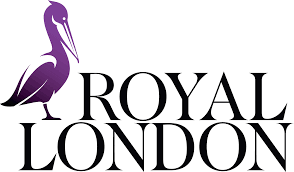Get Income Protection Quotes From...





Your Straightforward Guide to
Income Protection Insurance
You will find everything you need to know about Income Protection Insurance below. We suggest reading through the full article for a thorough overview of income protection.
If you have a specific question on Income Protection Insurance the sections below should help.

Everything you need to know about
Income Protection Insurance Ireland
Let’s start by looking at what Income Protection Insurance is and what options may be available to you when setting up your policy.
What is Income Protection Insurance?
Income Protection Insurance provides a weekly cash payment if you cannot work due to ill health. It is important to note that an income protection policy is not designed to protect you financially against short-term illness.
Income protection insurance is designed to protect you financially if you are out of work for the medium to long term.
The shortest waiting period, known as the deferred period, is usually around four weeks. This means you would need to be out of work for four consecutive weeks before you could claim on your income protection policy.
Income Protection Insurance Deferred Period
When you purchase an income protection policy, you decide how long the deferred period will be. The deferred period is the time between you first becoming unable to work and the time your policy kicks in and you start receiving payments.
The most common deferred periods available to choose from are
- 4 Weeks
- 8 Weeks
- 13 Weeks
- 26 Weeks
- 52 Weeks
The longer the deferred period you choose, the lower your monthly premium will be.
What deferred period and income amount should I choose?
This is a question you should discuss with your protection advisor, as the period you choose will depend on your individual circumstances and budget.
However, when selecting a deferred period with your advisor, here are some things to remember.
Sick Pay Entitlements
Income protection insurance kicks in after you have exhausted your sick pay entitlements. For example, your employer may offer to cover your income if you become unwell. You should check what this period is. Since January 2024, employers have had to provide some sick pay. See statutory levels of sick pay.
You would then normally choose your deferred period based on when your sick pay entitlements end or as close as possible to this time within your budget.
Pension Cover
Your pension scheme may provide some sick benefits or cover for early retirement if you cannot continue working.
It is worth checking these entitlements before deciding on the level of cover you need and the deferred period most suited to you. Your protection advisor can review your entitlements and pension cover before recommending suitable cover levels.
How much of my income can I insure?
You can cover 75% of your income, less any social welfare payments you may be entitled to and any payments received from your employer with an income protection policy.
Providers will not cover your full income. This ensures there is always a financial incentive for you to return to work.
You do not need to provide proof of income when setting up a policy, but if you claim as an employee you will need to provide your last three payslips before falling ill and/or an Employment Detail Summary (formerly known as a P60)
The requirements to prove income are different for self-employed people and companies. We look at this in more detail in the sections dedicated to self-employed people and companies below.
How to select the end date of your policy?
You must choose an age at which cover on your income protection policy will cease.
If you receive a payment at this time the payment will stop.
You can select an age between 55 and 70 for cover to end. The age you choose will normally depend on your occupation.
This age can be selected based on your pension entitlements. Once you can access your pension, you can plan for your income protection payments to stop. You should discuss this with your protection advisor before deciding the most appropriate age to cease cover for you.
What is Guaranteed Income Protection?
Guaranteed Income Protection is a policy with a fixed premium for the entire policy duration.
This means your premium does not increase over time. A Guaranteed Income Protection policy will be more expensive than a reviewable income protection policy.
What is a Reviewable Income Protection Policy?
A reviewable income protection policy is one in which your premium changes over time. Normally, your policy is reviewed every five years, and your premium increases with age.
Benefits to Purchasing Income Protection From a Broker
Wondering if purchasing income protection with a bank or broker is better?
The answer is clear.
What it covers?
Income Protection Insurance
Knowing what your income protection insurance covers can help you make a more informed decision when deciding whether or not this type of policy is suitable for you.

What does Income Protection Insurance Cover?
Income protection insurance covers any illness that prevents you from working in your normal occupation.
For example, it will cover you for more serious illnesses such as a stroke, heart attack, cancer, mental health issues, etc. However, it will also cover you for a car accident, a slip and fall, and less serious incidents, preventing you from working in the medium to long term.
This gives you ultimate peace of mind, knowing your income is protected should the worst happen.
Many people confuse income protection with serious illness. We will look at the differences below.
Income Protection Vs Critical Illness
An income protection policy covers you for any illness/injury that prevents you from being able to work in your normal occupation.
Critical illness cover will only protect against a serious illness. The critical illnesses covered will depend on the policy chosen. These are normally serious, long-term, debilitating, and/or terminal conditions. When reviewing your quotation, you will be given a list of illnesses that are covered.
The above shows that income protection insurance offers far more financial protection than a critical illness policy would.
If income protection is within your budget, it would be the preferred choice. If not, a critical illness policy (which is cheaper) can provide you with some financial protection. Critical illness is the middle ground between having no cover and having full cover with an income protection policy.
Does Income Protection Insurance cover Mental Health Issues?
Yes, income protection insurance covers mental health conditions such as anxiety, stress, depression, etc. If you are unable to work due to the condition of your mental health, you will be able to claim on your income protection policy.
Exception for Pre-Existing Conditions: If you have been to the doctor or have been treated for mental illness in the five years leading up to your policy, you will normally not be covered. This is because the condition would be seen as preexisting and generally excluded from the policy.
Your protection advisor will be able to work with you to see if you will qualify for this cover.
Will my Income Protection cover me if I lose my job?
No, income protection will not cover you if you quit your job, are fired or are made redundant.
Will my Income Protection Policy cover me for Maternity Leave?
No, your income protection policy will not cover you while you are out of work due to maternity leave.
What happens if I am in between jobs when I become unable to work?
Your income protection policy will not cover you if you become unable to work while in between jobs. It is essential to update your policy while you are out of work so you are not left out of pocket.
What does Income Protection not cover?
All policies have a list of exclusions, so it is important to check the cover you are offered to ensure it suits your needs.
Some of the most common exclusions include
- Pre-existing medical conditions you knew about before placing cover.
- Self-inflicted injuries.
- Failure to follow medical advice.
- Disabilities or illnesses arising from a criminal act.
- Normal pregnancy, including childbirth.
- Drug or alcohol abuse.
Why Choose
Our Nationwide Broker Partners
All our Broker Partners are regulated by the Central Bank of Ireland.
All our Broker Partners are members of Brokers Ireland.
An experienced advisor can help you easily navigate the options availble and tailor your policy to your exact needs.
Hectic lifestyle or work commitments? The ability to set up your policy online makes it much easier to get started.
Revenue
Tax Relief on Income Protection Policies
The government knows how beneficial an income protection policy can be for those unable to work.
As a result, they have applied tax relief to all income protection policies.

Tax Relief on Income Protection (Employees, Sole Traders & Partnerships)
If you are employed, are a sole trader or are part of a partnership and have an income protection policy, you can claim tax relief on the premiums paid at your marginal rate.
Standard Rate: If you pay the standard rate of tax, you can claim back 20% of the cost of this cover.
Higher Rate: If you are on the higher tax rate, you can claim back 40% of the cost of this coverage.
This operates in a similar way to pension tax relief. You may be more familiar with this concept.
Tax Relief on Executive Income Protection Policies (Companies)
An executive income protection policy is a policy paid for by a company to cover its director and/or employees.
If you purchase an income protection policy in this manner, the cost is an allowable business expense that can be offset against your corporate tax liability.
More About
Income Protection For Self Employed People
If you are self-employed and run your own business, having income protection insurance should be high on your list of priorities.
This is because the social welfare supports available to self-employed people in Ireland are extremely limited.

Can I get Income Protection if I'm Self Employed?
Yes, if you are self-employed you can get income protection coverage. You can insure up to 75% of your taxable earnings.
How do I prove my income as a self employed person?
You do not need to provide any proof of income to set up your policy.
If you make a claim, your insurer will ask for proof of income.
As a self-employed person, you can prove your income by providing certified accounts for the last three years and/or income tax assessments for the previous three years.
More About
Executive Income Protection
Executive Income Protection is a policy that is available to limited companies.
There are many advantages to executive income protection. Let’s take a look below.

What is Executive Income Protection?
Executive Income Protection is an income protection policy designed for directors or employees of a limited company.
You can insure up to 75% of your salary and/or the salaries of your key employees.
You can also insure your pension contributions, generally up to a limit of 33% of your overall salary. More on this below.
Is Executive Income Protection an Allowable Business Expense?
Yes, you can write off the cost of the premiums as an allowable business expense against your corporate tax liability.
Will I as a director or my employees be liable for Benefit in Kind on payments received?
No, under current Benefit in Kind rules, you or your employees will not be liable for BIK on payments made from your income protection policy.
What is the benefit of having this cover as a director?
If you, as a company director, are no longer able to work due to illness or injury, the financial consequences can be disastrous.
Executive income protection provides you and your family with a safety net that guarantees 75% of your income until you return to work or until your policy expires.
In many cases, the director of a limited company will be their household’s main breadwinner. In these circumstances, having the appropriate coverage is essential.
What is the benefit of providing this cover for my employees?
With competition for talented employees continuously increasing, offering an income protection policy to your employees can form part of their remuneration package.
It can be used to attract and retain talented employees, increasing your business performance.
Can I cover my Pension Contributions?
Generally, you can protect your pension contributions at up to 33% of your salary. This usually is subject to an overall limit set by your insurer. Your financial advisor will review the allowable pension coverage on each quotation before making a suitable recommendation.

